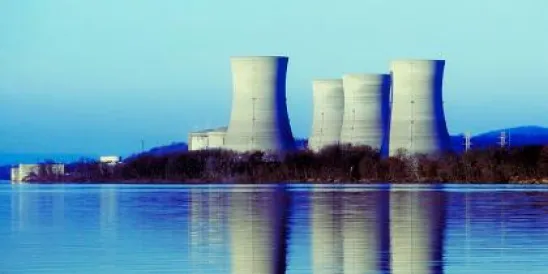On December 29, the IRS and the US Department of the Treasury issued a Notice of Proposed Rulemaking (NOPR) laying out proposed regulations that provide welcome clarifications to and expansions of the final regulations under Section 468A of the Internal Revenue Code (Code). In what could be taken as a late holiday gift to the industry, the NOPR indicates that taxpayers may file tax returns on the basis of the proposed regulations prior to finalization.
Section 468A
Section 468A permits eligible nuclear power plant owners to make an election to currently deduct certain amounts set aside and transferred to an eligible qualified fund established for the purpose of the future decommissioning of a nuclear power plant. This provides an eligible electing plant owner with a federal tax deduction acceleration benefit as compared to the treatment under the normal tax accounting rules, which generally would postpone the tax deduction until the actual decommissioning activities were performed. When decommissioning activities are performed, distributions from the qualified fund become income to the plant owner and subject to income tax, but the plant owner typically has a corresponding deduction for the decommissioning expenses to offset this additional taxable income. As stated in the preamble to the proposed regulations, “[t]he intent of [S]ection 468A is to allow owners of nuclear power plants to put amounts into [a qualified fund] on a tax-free basis and then use those amounts and the earnings on those amounts to pay for decommissioning.”
Section 468A, however, restricts the use of proceeds from a qualified fund to certain enumerated costs “satisfying...the decommissioning of a nuclear power plant.” The Code, including under Section 468A and the associated regulations, also provides a number of restrictions—enforced through the imposition of a punitive excise tax—on qualified funds being used in a manner viewed as “self-dealing” in transactions between the qualified fund and related parties. Section 468A is therefore intended to incentivize nuclear plant operators to ensure that sufficient funds are on hand to safely decommission a nuclear power plant after it ceases to operate.
Clarifications in the Proposed Regulations
As more nuclear plants have begun decommissioning in recent years, a number of questions have arisen about the eligible uses of qualified funds under Section 468A. The proposed regulations provide the following clarifications that the industry will find welcome:
-
Expressly includes independent spent fuel storage installation (ISFSI) construction costs as eligible nuclear decommissioning costs. The IRS had previously taken the position that certain ISFSI construction costs were not eligible.
-
Specifies that qualified funds may be used to purchase a depreciable asset (e.g., ISFSI construction) even if the asset is not immediately depreciable. The preamble to the proposed regulations states that this clarification is necessary to effectuate the intent of Section 468A.
-
Excludes from the list of potential self-dealing transactions the use of qualified fund amounts to reimburse the electing plant owner for its previously expended eligible decommissioning costs. Unsurprisingly, however, the preamble to the proposed regulations cautions that “no amount beyond what is actually paid by the related party, including amounts such as direct or indirect overhead or a reasonable profit element, may be included in the reimbursement by the” qualified fund.
-
Expands the definition of “substantial completion.” Section 468A and the existing final regulations promulgated under this Code section require that the qualified fund must be terminated when there is “substantial completion” of the decommissioning of the nuclear power plant associated with the qualified fund. The normal “substantial completion” date is the date when the level of residual radioactivity at the decommissioning plant site satisfies the NRC’s safety criteria. The administration, however, has become aware that certain state and local regulations require that a decommissioning site meet criteria in addition to satisfying the NRC radioactivity levels. The proposed regulations accordingly broaden the definition of “substantial completion” to the date on which “all Federal, state, local, and contractual decommissioning liabilities are fully satisfied.”
Taxpayers May Rely on Proposed Regulations before Finalization
Although the regulation is not considered binding on taxpayers until finalized, the IRS advises in the NOPR that it will not challenge “return positions consistent with these proposed regulations for taxable years ending on or after the date these proposed regulations are published.”
Accordingly, plant owners may immediately utilize the beneficial treatment set forth in the proposed regulations.






 />i
/>i
